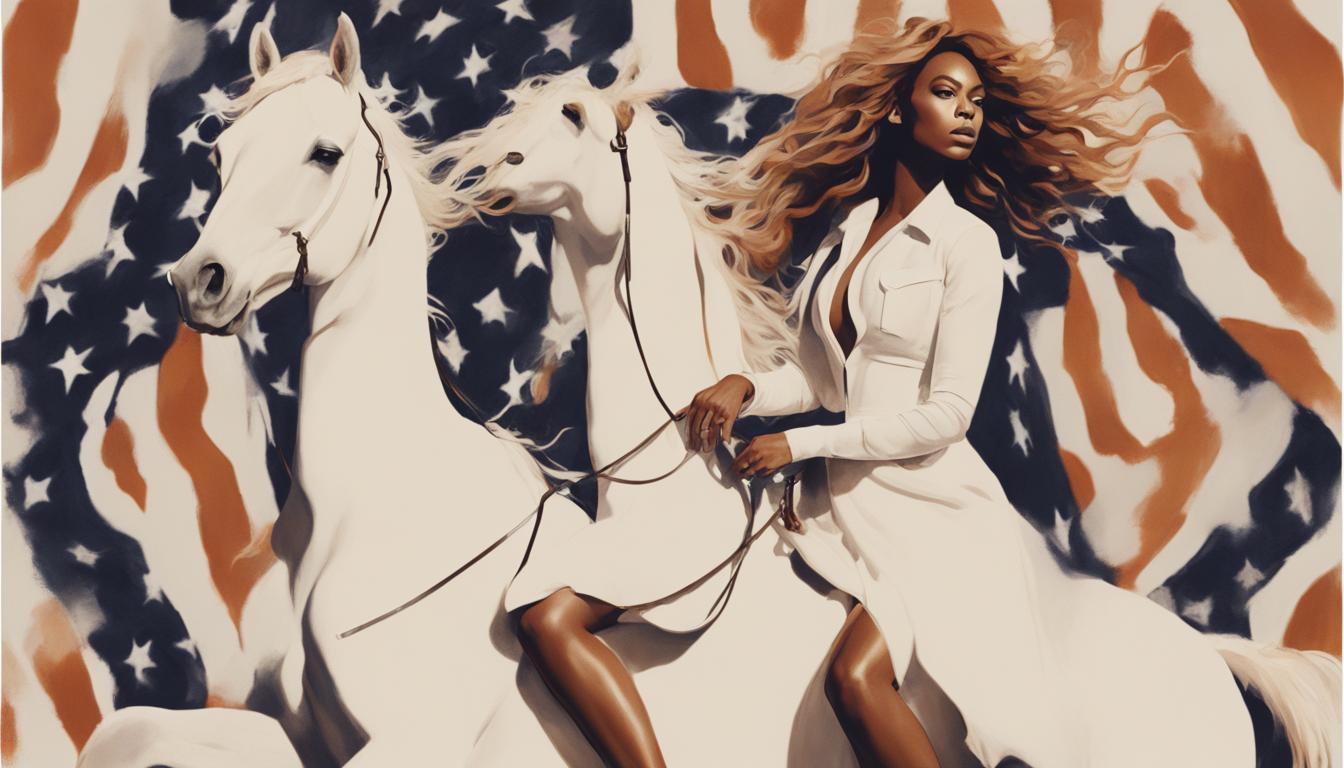Beyoncé Sparks Discussion with Americana Imagery in New Album
Beyoncé’s latest album, Cowboy Carter, features a strong Americana theme, including images of the pop star draped in the U.S. flag and riding a white horse. The album’s cover and promotional material showcase the flag in various forms such as capes, boots, and bomber jackets. This aesthetic choice has reignited conversations about the historical implications of the U.S. flag for Black Americans.
The pop star’s use of the flag comes amidst rising economic inequality and a 50% increase in hate crimes against Black people since 2019. Additionally, U.S. involvement in international conflicts, like the recent support for Israel against Palestinians in Gaza, adds to the controversy.
Beyoncé’s Americana theme echoes the complex relationship Black Americans have with the U.S. flag. While Black contributions to country music and other cultural developments are undeniable, the flag also symbolizes a history of slavery and oppression. The U.S. flag represented slavery much longer than the Confederate flag, adding layers of complexity to its symbolism for Black Americans.
Historically, enslaved people in the U.S. resisted and sought liberation through various means, including joining forces with the British during the Revolutionary War and forming self-sustaining communities. This history of resistance contrasts with the symbolism of the flag that Beyoncé uses in her album.
The discussion continues on whether embracing the U.S. flag aligns with the fight for Black empowerment and recognition, questioning the balance between national pride and historical realities.
Derecka Purnell, writing for the Guardian US, shared these thoughts, adding depth to the ongoing conversation about representation, historical context, and cultural pride in the Black community.
Keywords: Beyoncé, U.S. flag, Cowboy Carter, Black Americans, symbolism, historical context, cultural pride, economic inequality, hate crimes.
